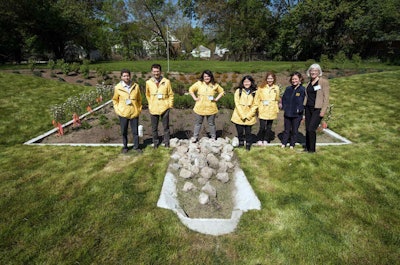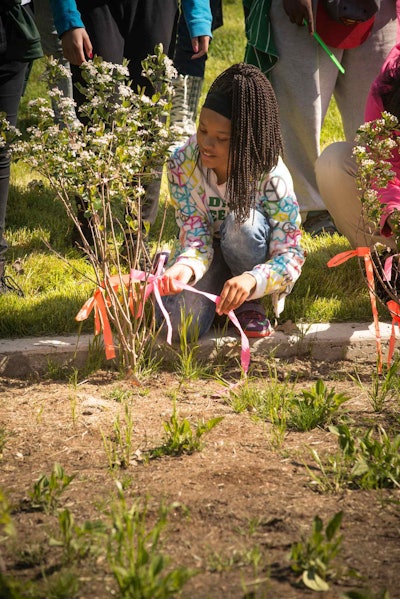 The bioretention gardens soak up and store water from the street to help reduce overflows during large storms.
The bioretention gardens soak up and store water from the street to help reduce overflows during large storms.Photo: University of Michigan School of Natural Resources and Environment/Flickr
Parts of Detroit have been the object of urban decay for years now, leaving many abandoned houses to be razed and the lots on which they stood choked with weeds.
Four of those empty lots have been given a new purpose through a pilot program that is being conducted in an effort to contain stormwater.
The Detroit Water and Sewage Department, the University of Michigan Water Center and Detroit Land Bank Authority have collaborated to create bioretention gardens on the west side of the city.
Detroit Land Bank Authority donated the property that the projects were built on, while the Detroit Water and Sewage Department and the University of Michigan Water Center contributed $500,000 and $258,000, respectively, to implement the program.
Joan Nassauer, a University of Michigan professor of landscape architecture, recognized the potential of the basements of the demolished homes. Unlike the clay soils around them, the basements could be filled with a porous material that would soak up water, reducing not only street flooding but also stormwater contamination of the Rouge River.
 Eighth graders from Detroit Dixon Educational Learning Academy tie markers to the plants.
Eighth graders from Detroit Dixon Educational Learning Academy tie markers to the plants.Photo: University of Michigan School of Natural Resources and Environment/Flickr
“This can be done in a way that immediately benefits people who live nearby,” Nassauer told The Detroit News.
Before the project even began, residents told researchers how they felt the gardens would improve their property values and make them feel safer.
“It’s better than having an empty house here,” said Aaron Simmon, a Detroit resident who lives across from one of the new gardens. “I’m glad they knocked it down. It looks good.’
According to city officials, each garden is estimated to reduce stormwater runoff by 300,000 gallons annually.
The gardens will also be used as an educational tool for students from nearby schools. The University of Michigan will provide classroom materials and hands-on activities to teach the young people how gardens help the environment.
The city held a celebration earlier this week to mark the completion of the gardens.
Here is a video of Nassauer discussing the project:










